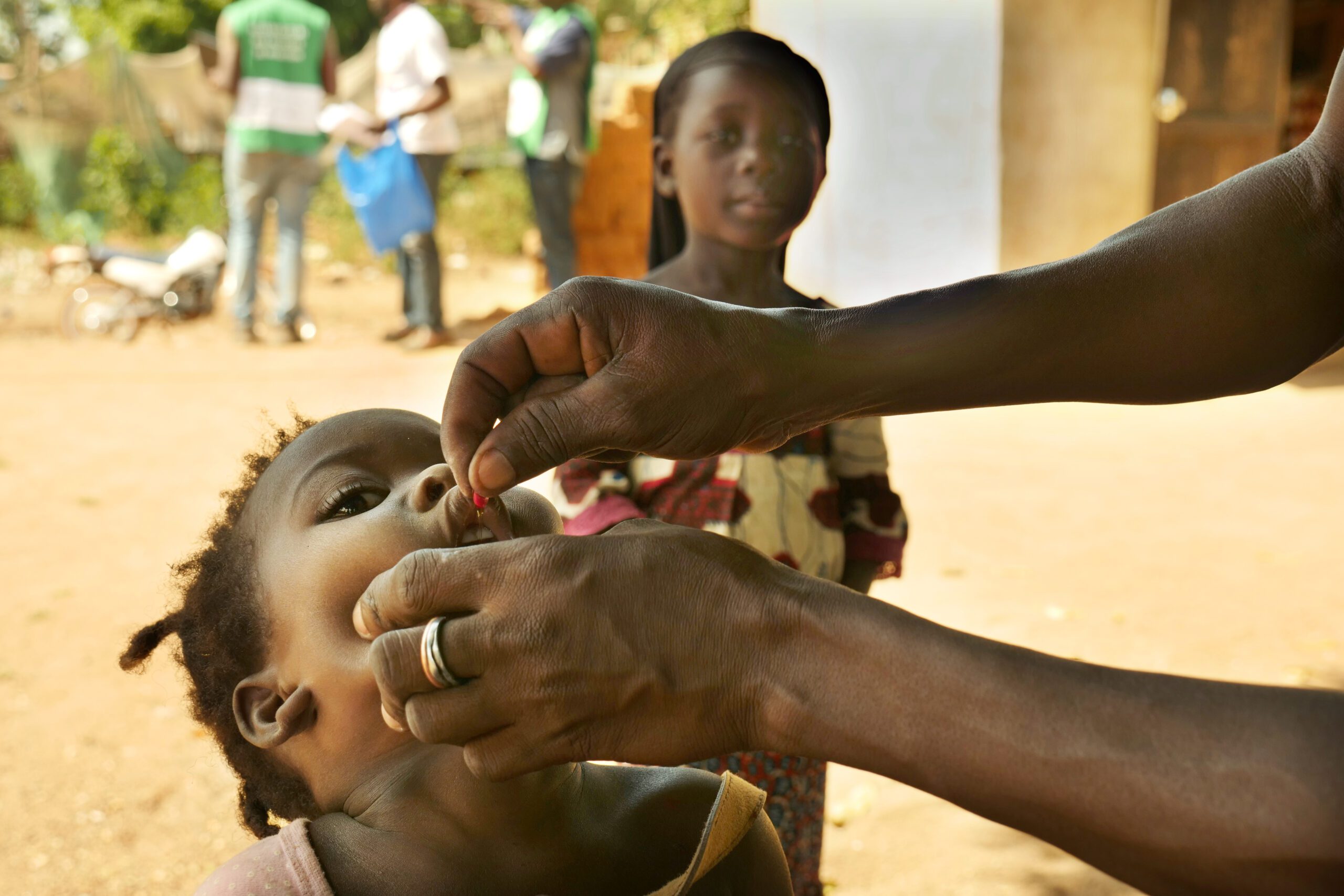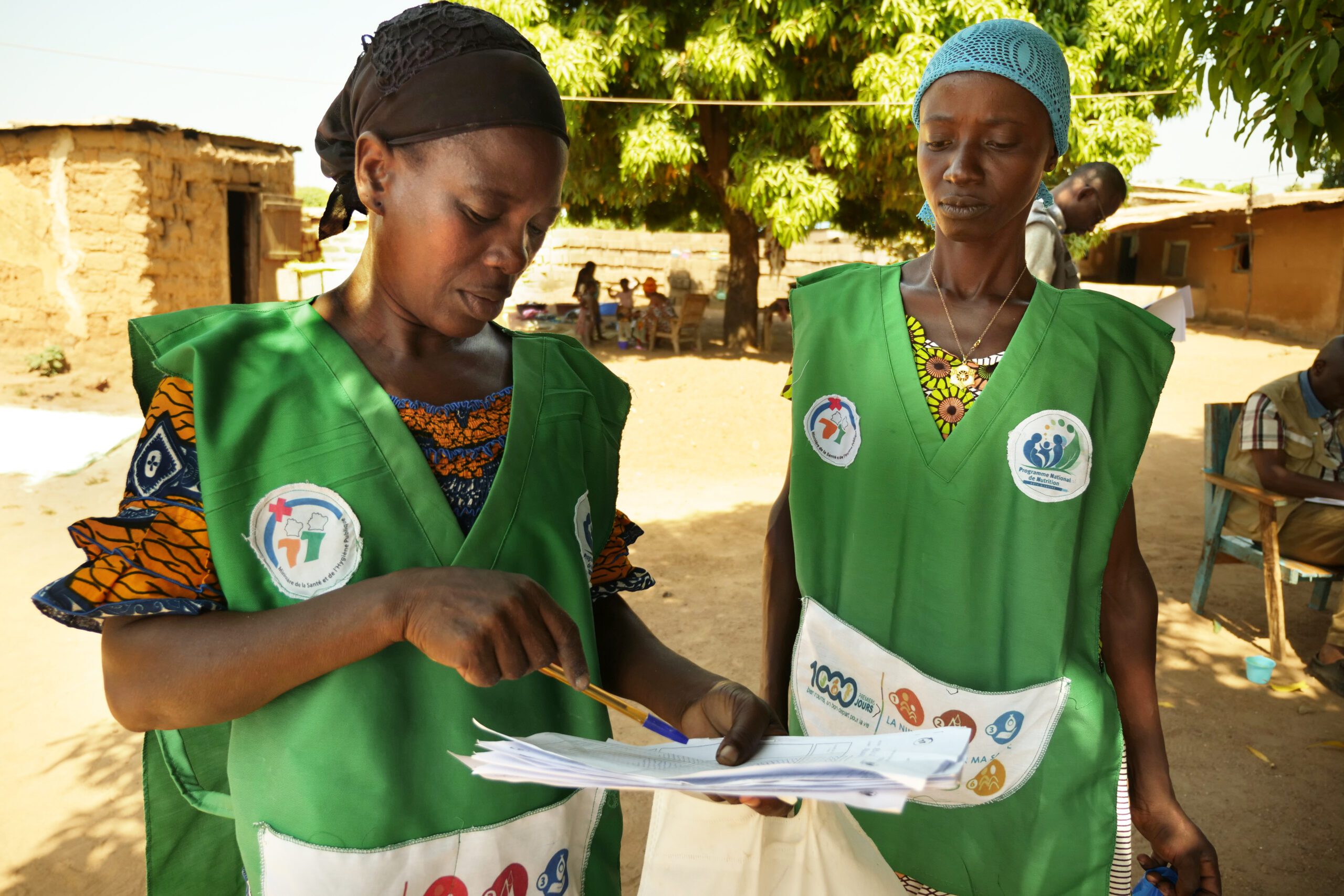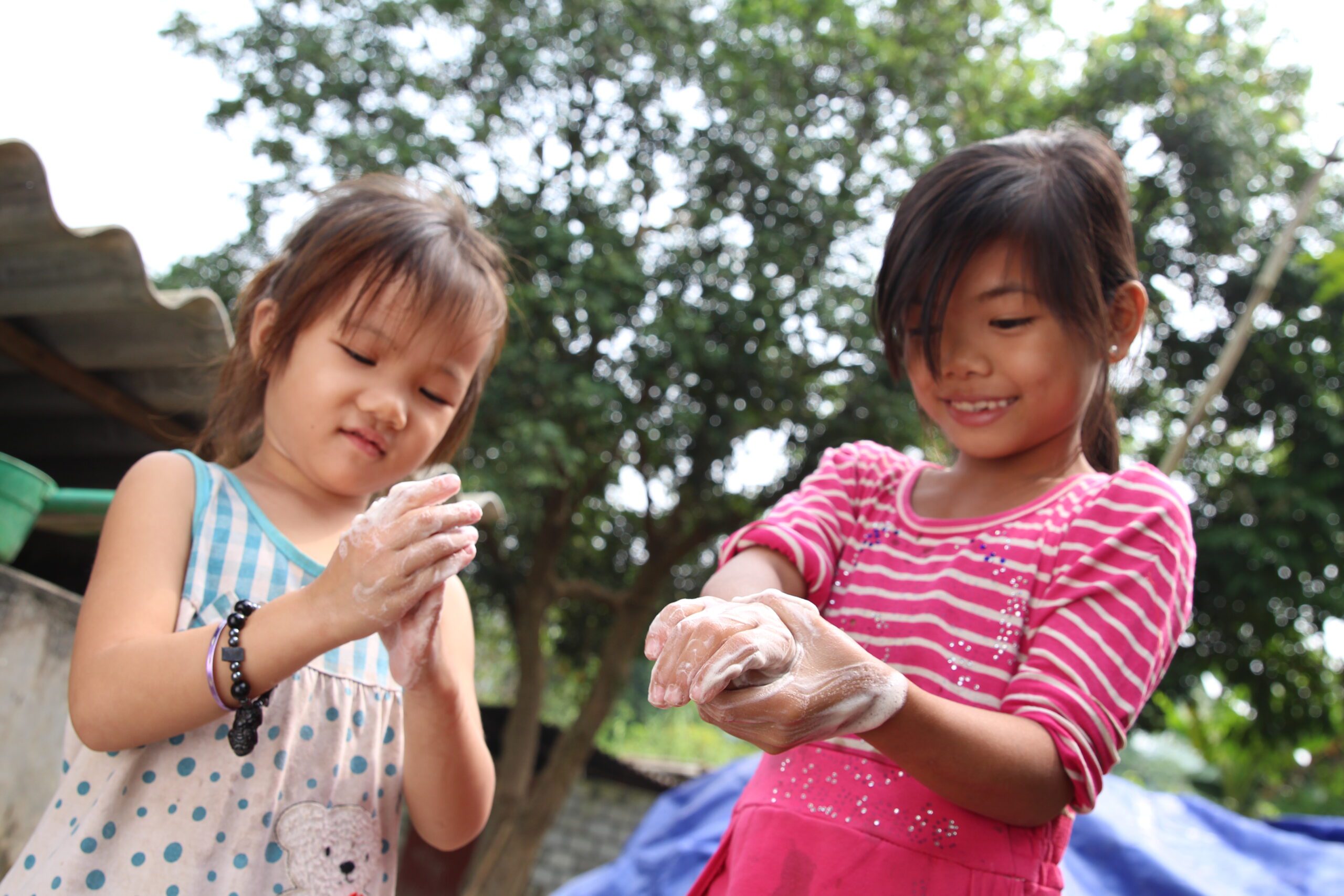Cote d'Ivoire: Local "Vitamin A Heroes" Face Major New Obstacle to Saving Children's Lives
Every six months for the past three years, Moriame Sidibé has put her normal life as a mother and homemaker on hold to join a three-day vitamin A supplementation and deworming campaign implemented by the Cote d’Ivoire government with support from Helen Keller Intl.
It’s taxing work. For hours at a time, underneath a blazing hot sun, Sidibé walks from door to door with another trained community health volunteer, administering vitamin A capsules and deworming pills to children from the ages of six months to five years of age.

Sidibé and her partner mark with black ink the pinky finger of every child they serve, to prevent accidental double dosage. They also chalk the door of each home they visit, to clearly identify which households have been reached.

“I love children. Myself, I have four of them. I want all children to be healthy. That’s why I do it,” Sidibé said.
Sidibé lives in Boundiali, a town in northern Cote d’Ivoire. One in every four children in this West African country is malnourished; that number is even higher in the North.
Micronutrient deficiency (commonly called hidden hunger) is a particularly widespread form of malnutrition affecting children in Cote d’Ivoire. Hidden hunger occurs when people don’t have reliable access to nourishing food. They consume sufficient calories to keep them alive, but the food they eat lacks the essential vitamins and minerals their bodies need to be healthy. When children under the age of five do not get enough micronutrients—such as vitamin A, zinc, iron, and iodine—they are at greater risk of fatal infections as well as irreversible conditions such as blindness, stunted growth, and impaired brain development.
Evidence shows that vitamin A supplementation can reduce child mortality by more than 20 percent. This is because, in addition to improving children’s vision, vitamin A strengthens children’s developing immune systems so that they can better fight infections. Deworming pills, meanwhile, safely kill parasites that prevent children’s bodies from absorbing vital micronutrients like vitamin A. The most recent vitamin A supplementation campaign in Cote d’Ivoire, this past December, reached 98 percent of all children in the country with these lifesaving interventions: more than five million children.
Helen Keller Intl and our partners, including UNICEF and the Cote d’Ivoire Ministry of Health, provide children with the vitamin A supplements and deworming medication free of charge. These treatments are safe, but some mothers have concerns about their children taking a pill. Community health volunteers like Sidibé are experts at hearing, understanding, and responding to these concerns in a caring, supportive way.
Sidibé said, “There are mothers who refuse either because they have [been misinformed] that the drugs cause other diseases, or because their husbands haven’t given permission. We try to educate the mothers, tell them that it’s good for the kids and doesn’t make them sick. I search out my sisters to tell them this, and then they don’t refuse.”
For all the effort she puts into each campaign, Sidibé receives a stipend. However, she doesn’t do it for the money; it’s a labor of love.
You’re saving lives. That’s what makes me happy inside.
Moriame Sidibé
“My hope is really to change the mentality, so that people understand that the health of children is a priority, above all else,” she said. “When you arrive and the children are there, you’re happy. It makes you want to do the work. You’re saving lives. That’s what makes me happy inside.”
The Impact of COVID-19
Since we spoke to Sidibé in December 2019, a new threat has dramatically changed the landscape for the vitamin A supplementation campaigns that Helen Keller supports in Cote d’Ivoire. As of April 16, 2020, according to the World Health Organization (WHO), Cote d’Ivoire has 654 confirmed COVID-19 cases.
To prevent infections and contain the spread of the pandemic, on March 26, the WHO’s Strategic Advisory Group of Experts on Immunization recommended that countries stop mass immunization campaigns against all vaccine-preventable diseases. On April 9, The Global Alliance for Vitamin A, (comprised of UNICEF, Helen Keller Intl, and Nutrition International), built on this guidance and issued a consensus statement, recommending that countries temporarily postpone all mass vitamin A supplementation campaigns. This step is needed to protect populations from the potentially catastrophic impact of COVID-19, but the disruption of lifesaving vitamin A campaigns will put hundreds of thousands of already vulnerable children at even greater risk for disease.
The Global Alliance for Vitamin A has recommended – in alignment with WHO guidance – that vitamin A supplementation should continue to be delivered to children who come to health care facilities for other reasons, as long as safe locally. In Cote d’Ivoire and the nine other countries where we provide vitamin A, Helen Keller Intl is working with governments and local health partners to ensure that as many children as possible get vitamin A supplementation, while preventing new COVID-19 infections and containing the spread of the virus. As soon as conditions allow, we will support catch-up campaigns to help children regain the full benefit that two annual doses of vitamin A provide.
Until then, our priorities are to keep front line health workers like Moriame Sidibé and the children she serves safe from COVID-19 infection and to support communities in recovering from the crisis.










